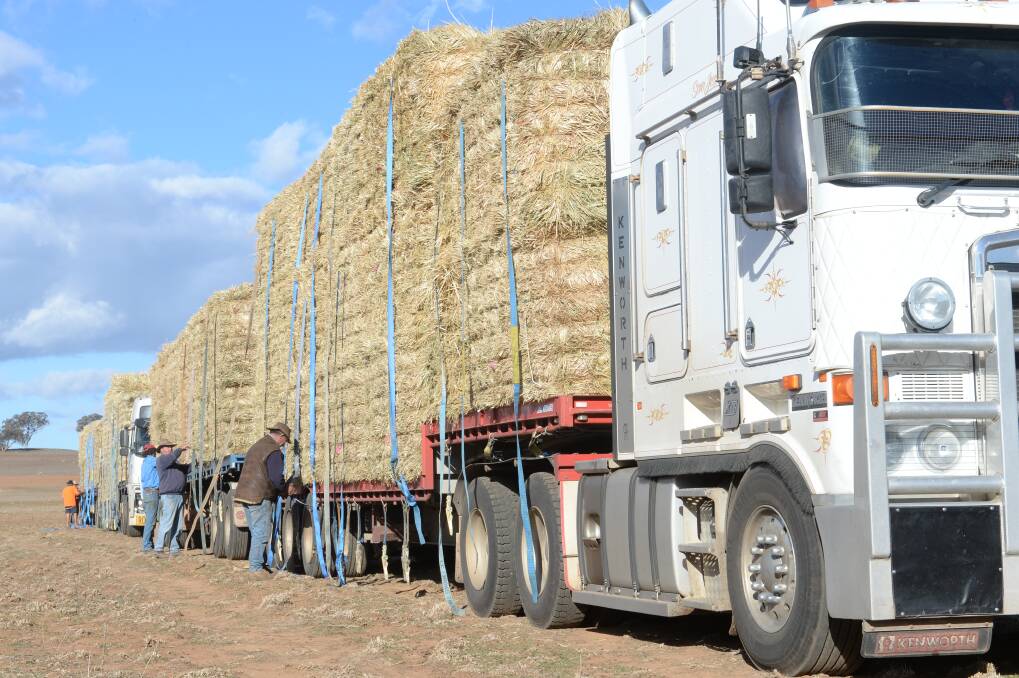
Drought-hit graziers in Queensland and NSW are buying hay at a frantic pace, igniting concerns an anticipated supply shortage could be felt sooner than expected.
Subscribe now for unlimited access to all our agricultural news
across the nation
or signup to continue reading
Farmers are being urged to secure supplies early and hay prices, which softened when new season product became available in November, have jumped by around $50/tonne in recent weeks.
Australian Fodder Industry Association chief executive officer John McKew said there wasn't an infinite supply of hay available, despite a bumper yield in parts of Victoria, South Australia and the NSW Riverina.
Mr McKew said with much of NSW and southern Queensland still in the grip of drought and bushfires now also taking a toll in SA, Victoria and NSW, the demand for hay was almost unprecedented.
"There is still a lot of hay in Western and Central Victoria, as well as South East South Australia, but all reports suggest it's being snapped up quickly by those in drought-affected regions," he said.
Initial forecasts from AFIA estimated there would be enough hay to supply the nation until winter but Mr McKew said that without widespread rain relief, supplies would be tight by the end of March.
"A month or so ago we were talking about the middle of 2020 - now it's the end of March and into April that we could be in a very tight supply situation for hay and fodder products," he said.
"If you have a time frame in mind (for when you need to buy hay) I would be cutting that in half and not waiting to secure supplies."
Mr McKew said regular hay users, such as feedlots, were more likely to have well-developed plans for long term hay supply.
"I think we are more talking about those people that have a few horses to feed, those drought feeding and dairy farmers," he said.
"If you are in a situation where your hay stocks are low and you know you will need to enter the market, you should start thinking about that purchase decision.
"Start thinking about trying to secure that now because the volumes that we are seeing moving north - we know supply is going to get tighter sooner than predicted."
Hay prices have also stabilised in recent weeks and Mr McKew said it was difficult to see them dropping again while demand stayed so strong.
"They are moving around a bit but there is nothing unreasonable about the prices," he said.
"During spring, hay prices softened marginally but we've recently seen consecutive weeks of market stabilisation - an indicator that demand is meeting supply."
Start the day with all the big news in agriculture! Click here to sign up to receive our daily Farmonline.

